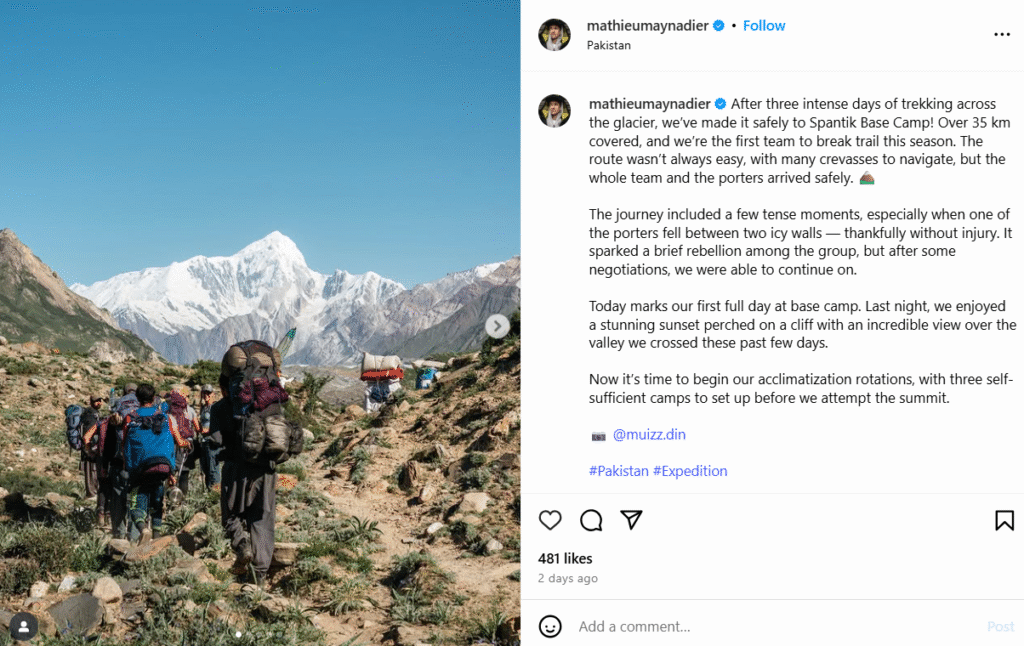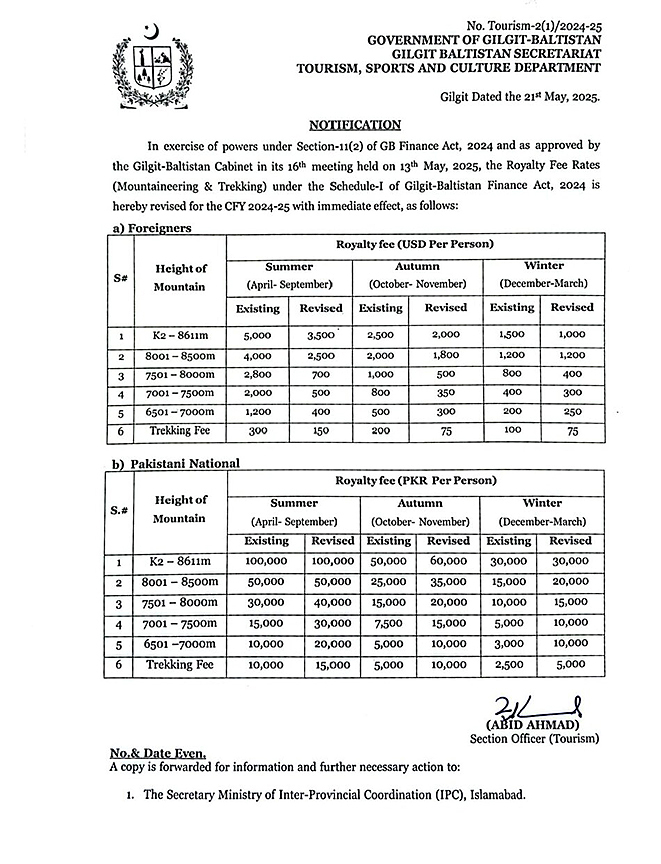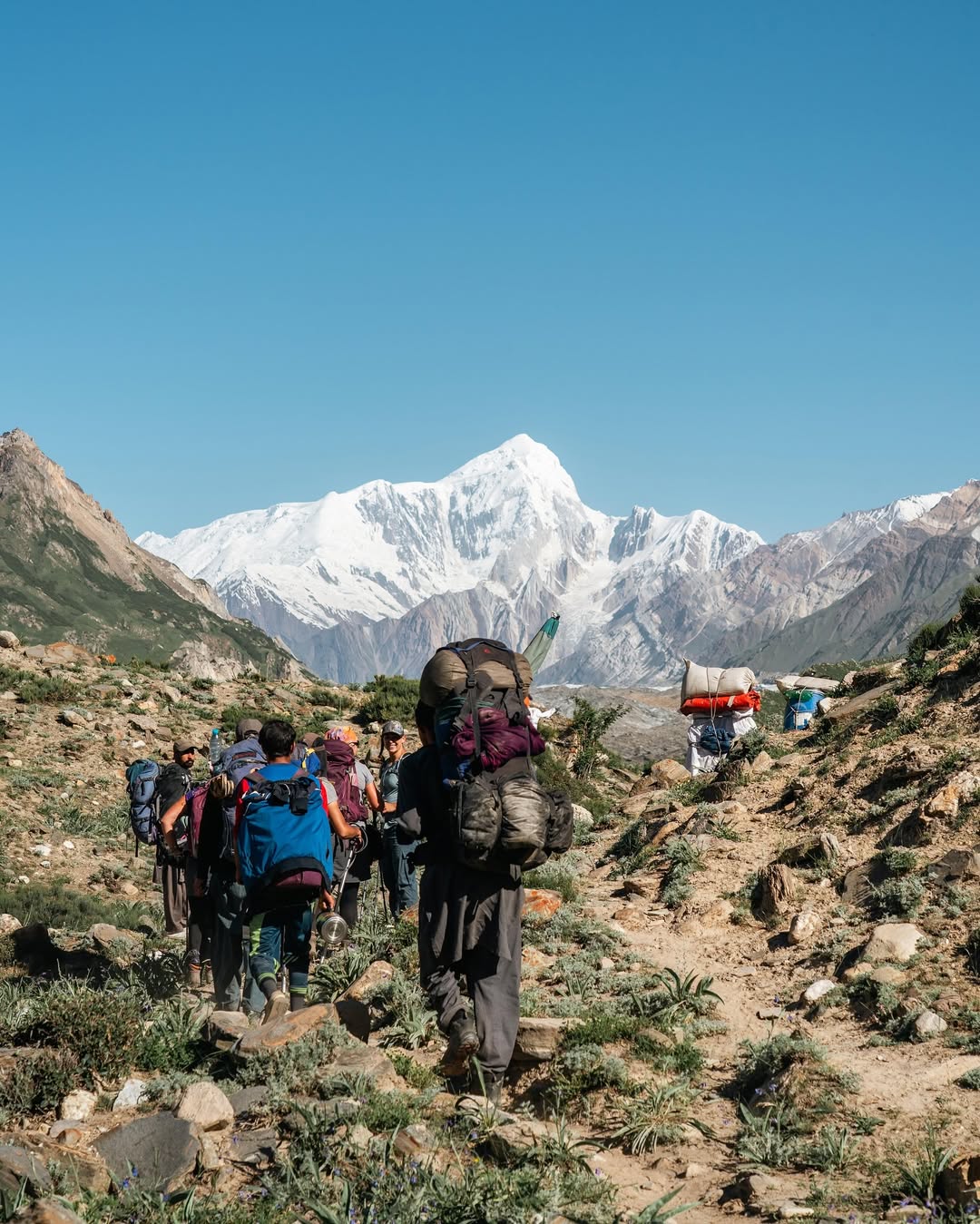Alpinists Return to Pakistan After Political Truce
In early May 2025, the season looked like it might unravel before it had even begun. Rising political tensions between India and Pakistan halted all flights to the north, effectively putting every climbing plan on hold. International teams were left grounded in Islamabad, expedition operators debated cancellations, and the mountains waited in stillness. But the pause was temporary. As diplomatic negotiations led to a fragile but functional truce, climbers were suddenly on the move again. The season hadn’t been lost – just delayed.
Among the first to step back onto glacial terrain were American climbers Ethan Berman, Maarten van Haeren, and Sebastian Pelletti. Their objective: Ultar Shar, a steep, dramatic 7,388-meter peak in the Batura Muztagh. Stranded in the capital during the height of the crisis, they resumed their approach as soon as flights opened. Their return marks a symbolic moment for alpine-style expeditions this season – a reclaiming of plans interrupted by politics.

Farther east, in the high valleys of Shimshal, the French alpinist Elias Millerioux has set up camp on the Momhil Glacier. Millerioux, a Piolet d’Or winner, has not publicly disclosed his goal, but his presence is telling. The area – home to peaks like Karun Koh and Shispare – is known for its complex topography and history of first ascents. Millerioux has been here before. His return signals unfinished business and quiet ambition.
Elsewhere, on Spantik, another quiet expedition is unfolding. French guide Mathieu Maynadier and Pakistani climber Mueez Ud Din are attempting a new route up the 7,027-meter peak, choosing the remote Chogho Lungma Glacier for their approach. After trekking 35 kilometers from Arandu, the duo has established base camp and begun their acclimatization. Their collaboration reflects a broader movement among alpinists – partnerships that cross borders, styles, and generations.

Meanwhile, behind the scenes, an economic compromise has helped calm a different kind of tension. Earlier this year, Pakistan announced a controversial increase in climbing permit fees, sparking concern among outfitters and climbers. Now, after negotiations, the revised fee for K2 has been set at $3,500 per climber, while other 8,000-meter peaks will cost $2,500. It’s not a small sum, but it is a middle ground, and it’s allowed expeditions to move forward with clarity.

The season is slowly taking shape. Climbs on K2 and Broad Peak are confirmed, but activity on the Gasherbrums remains uncertain. Nanga Parbat, which usually sees climbers from mid-June, may see less action this year due to the delayed start. Still, the momentum is returning. With weather windows opening and teams on the move, the Karakoram is once again alive with quiet determination.
Information for this article is based on field reports published by ExplorersWeb in May 2025.






Comments